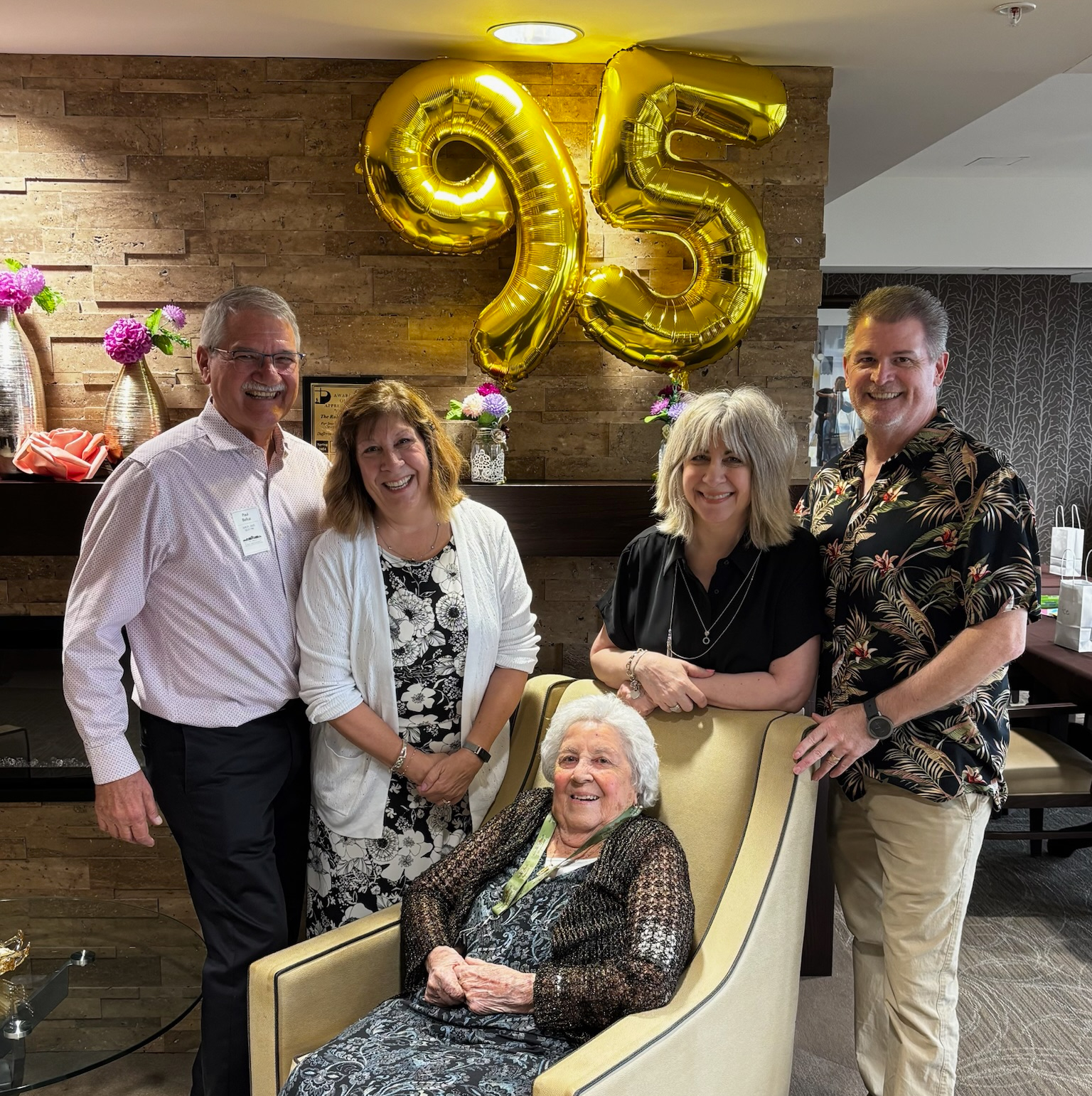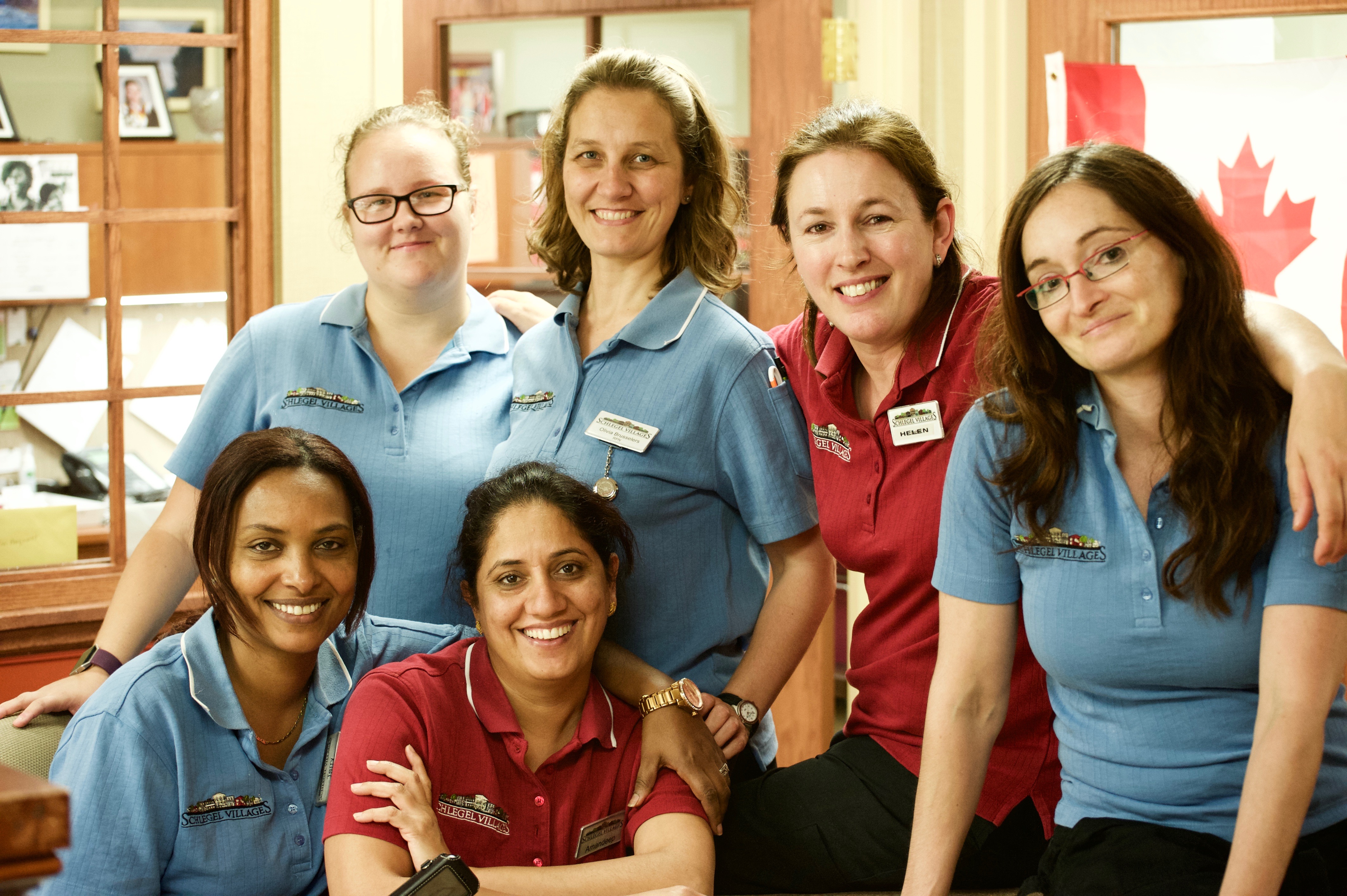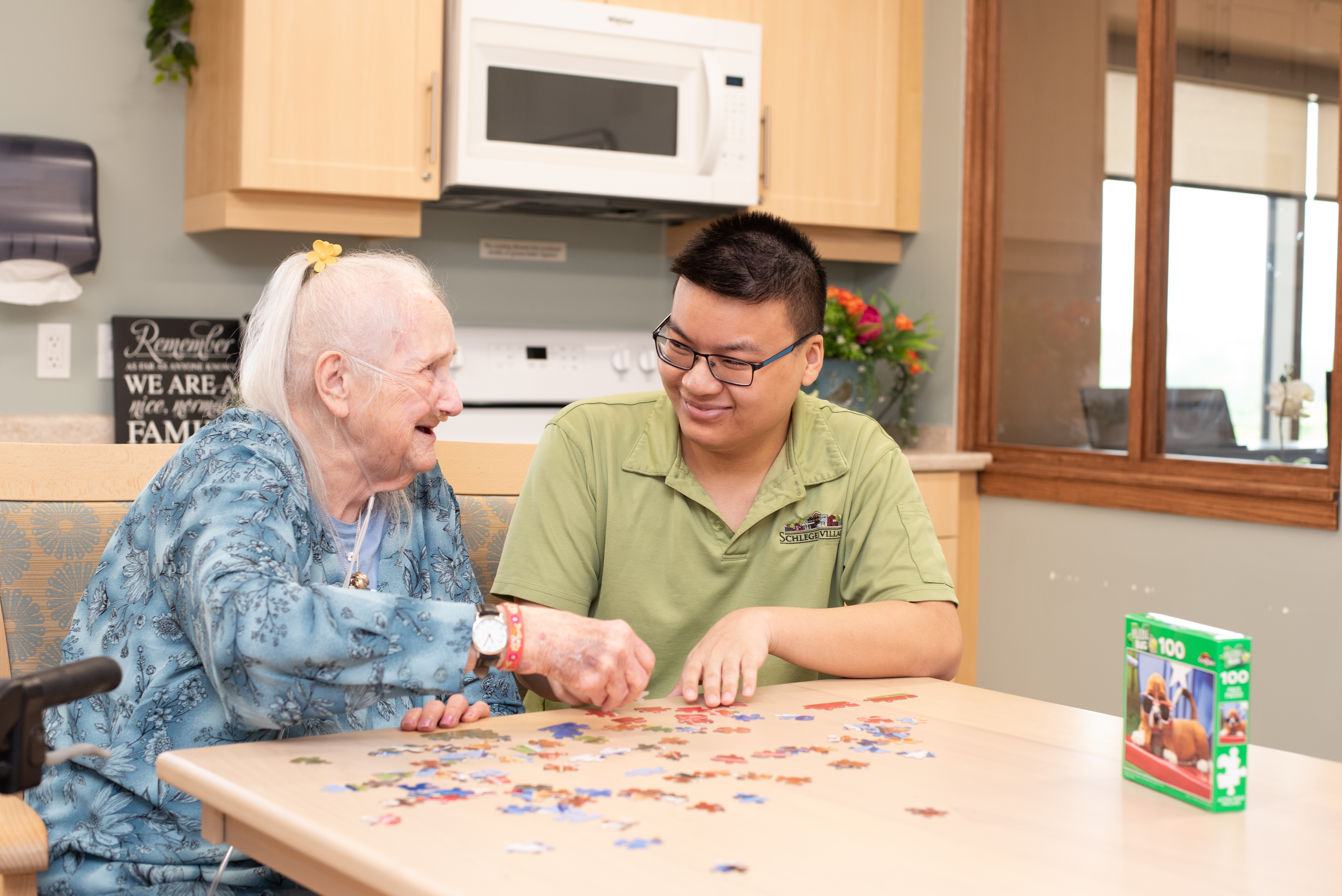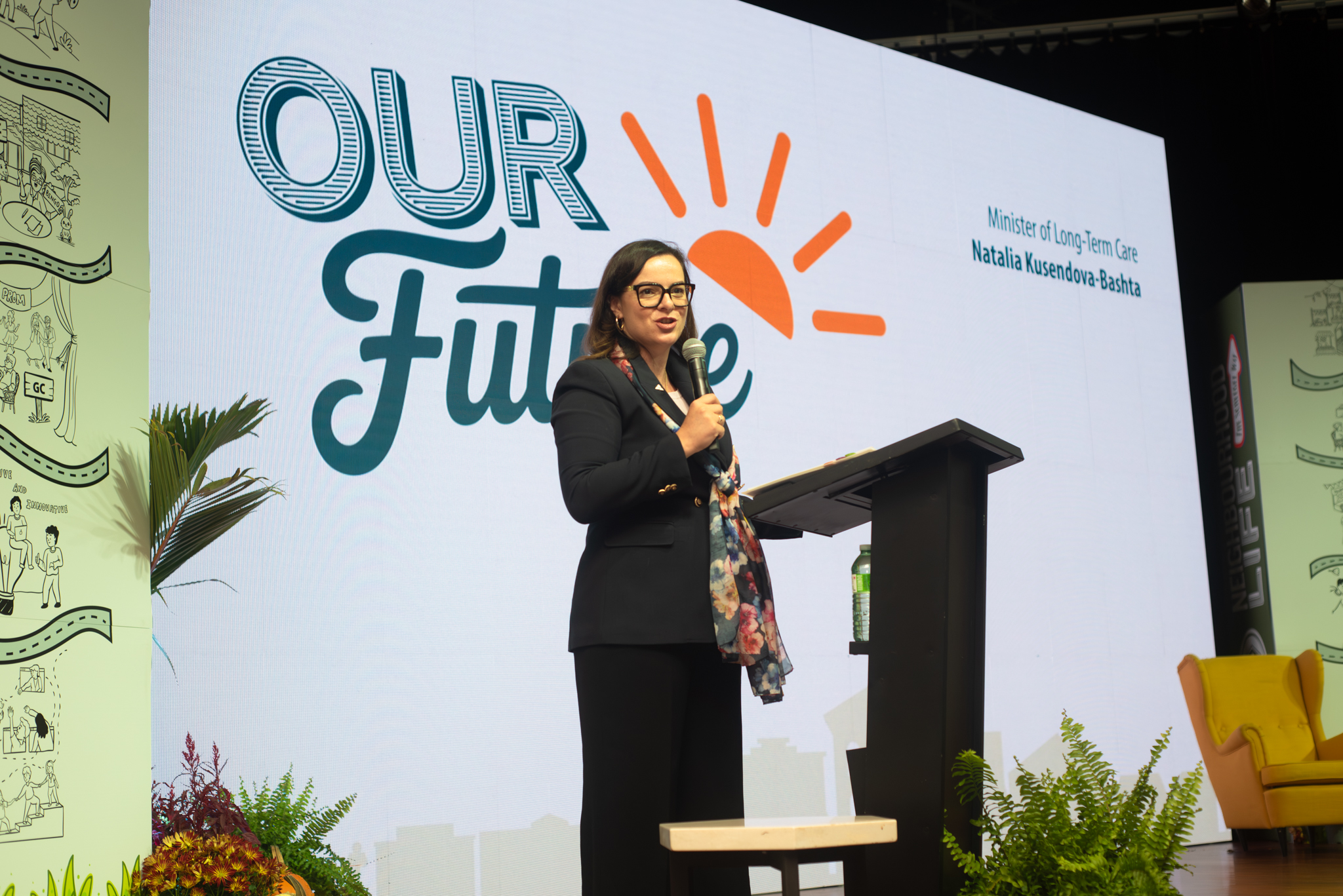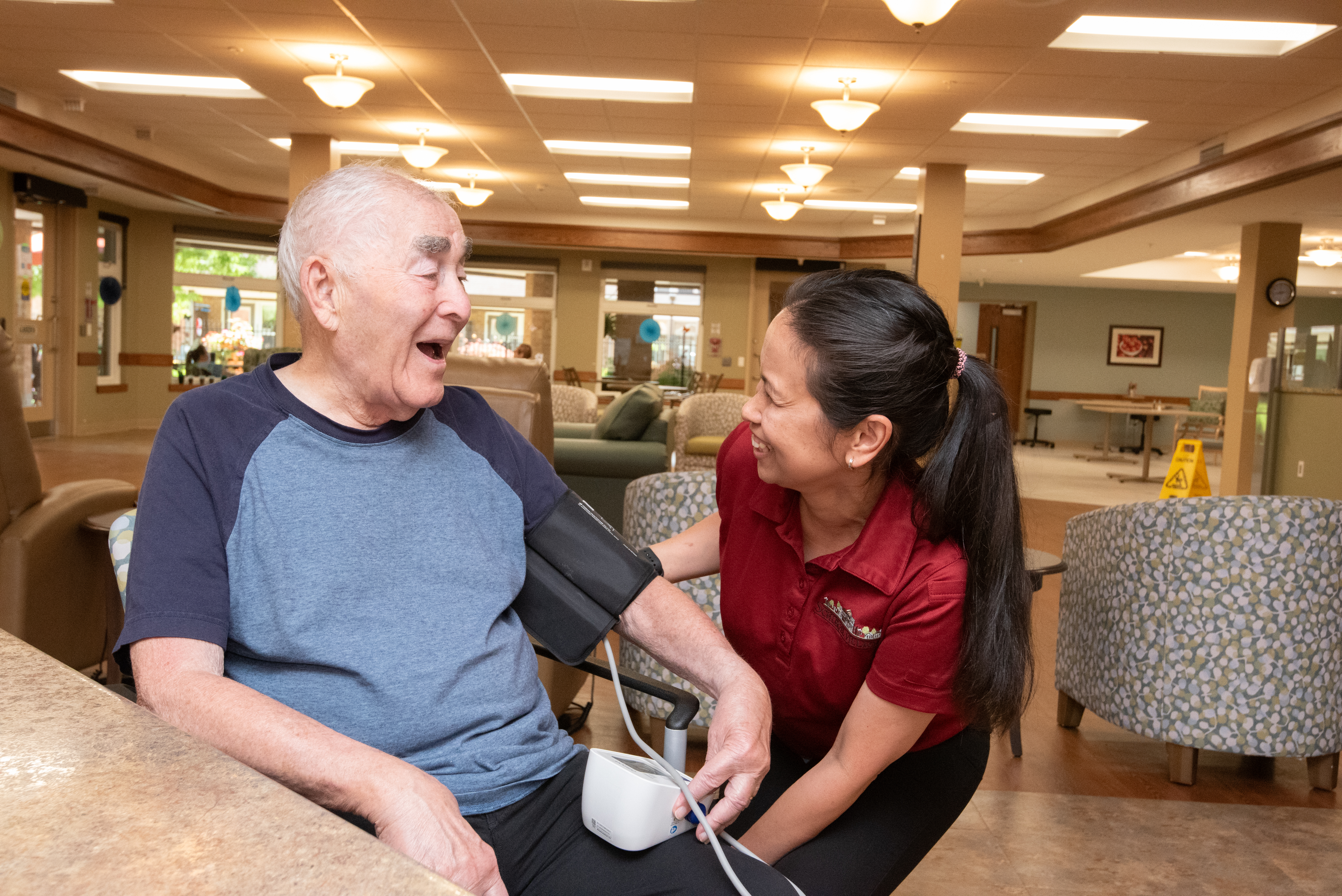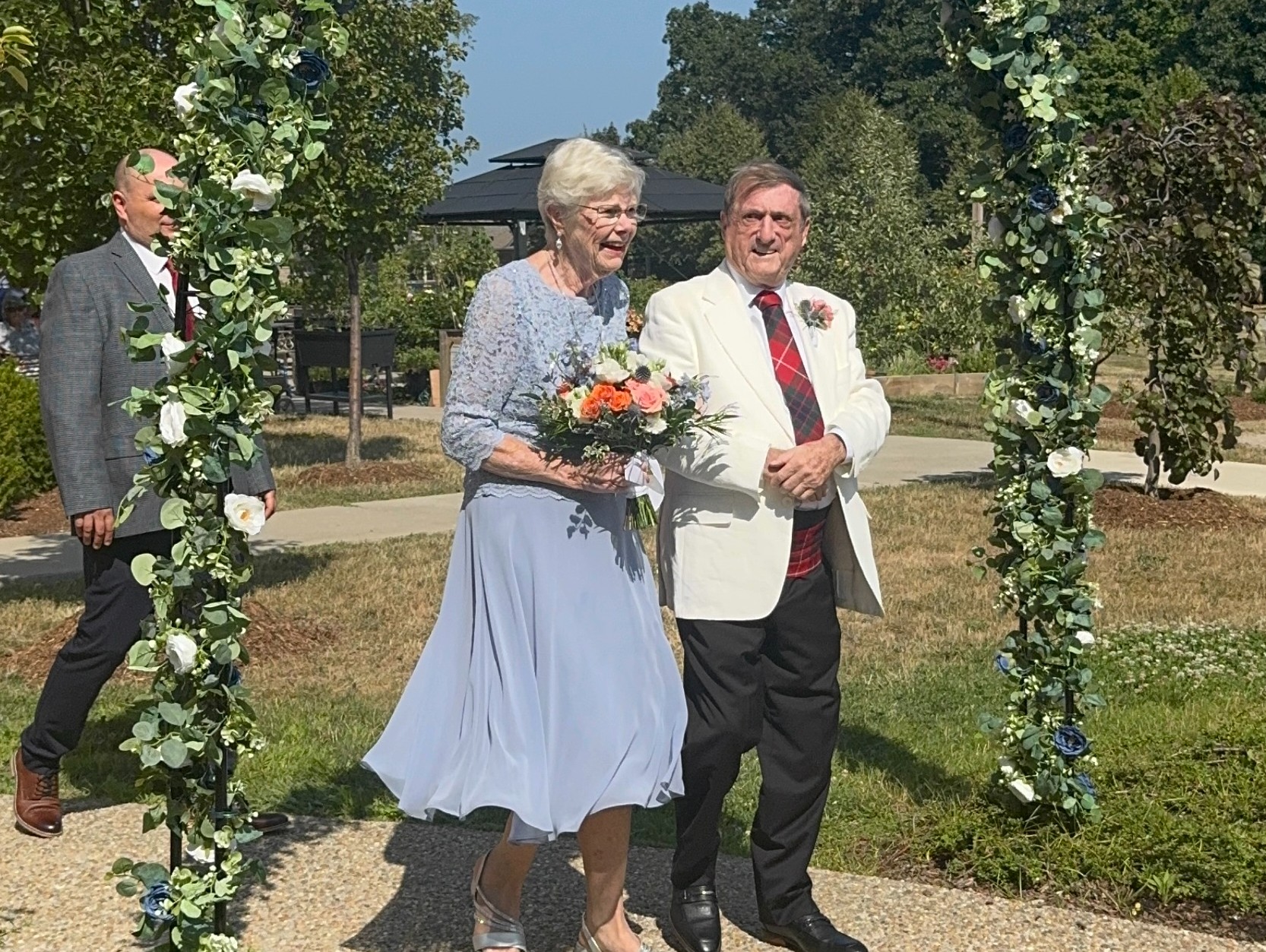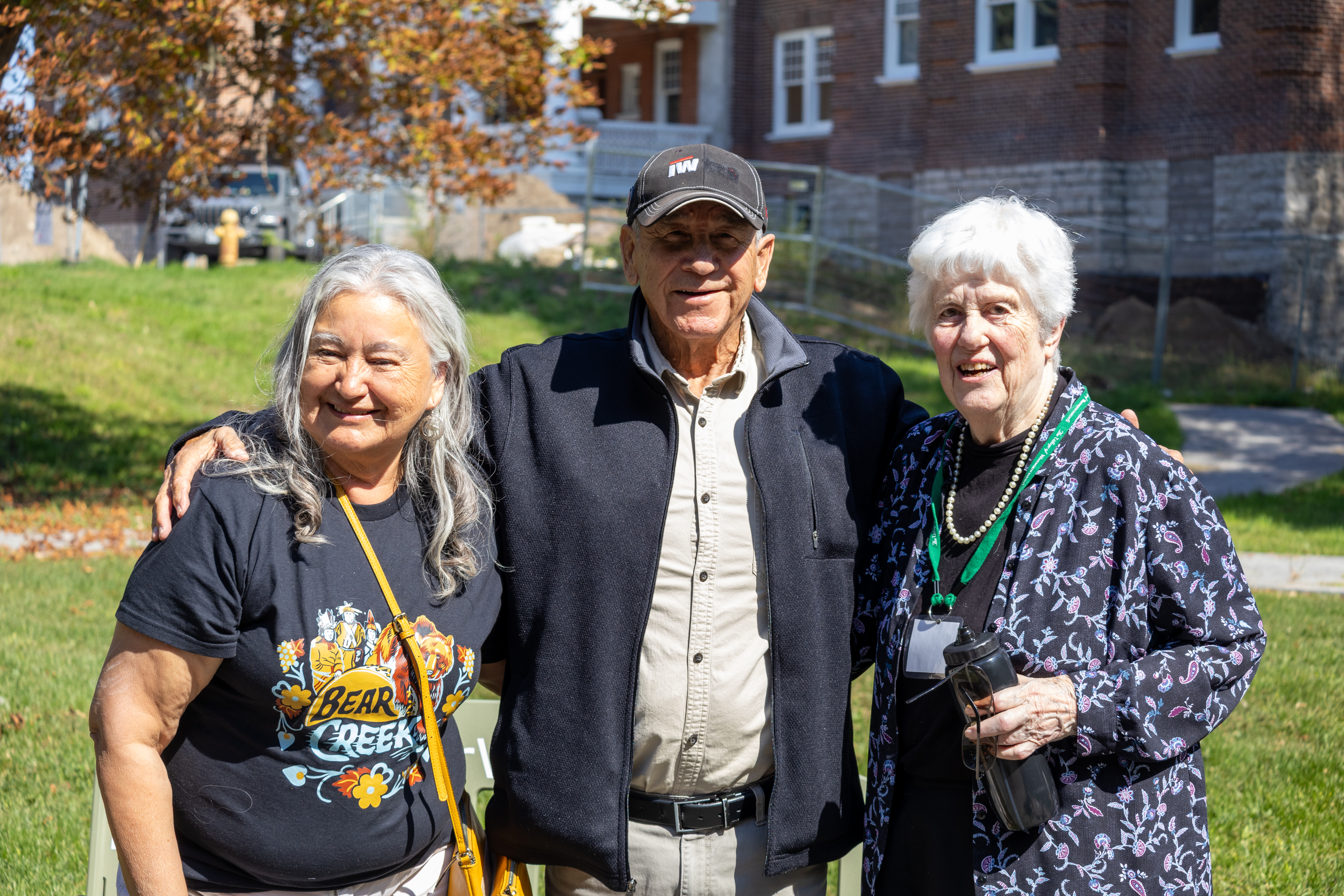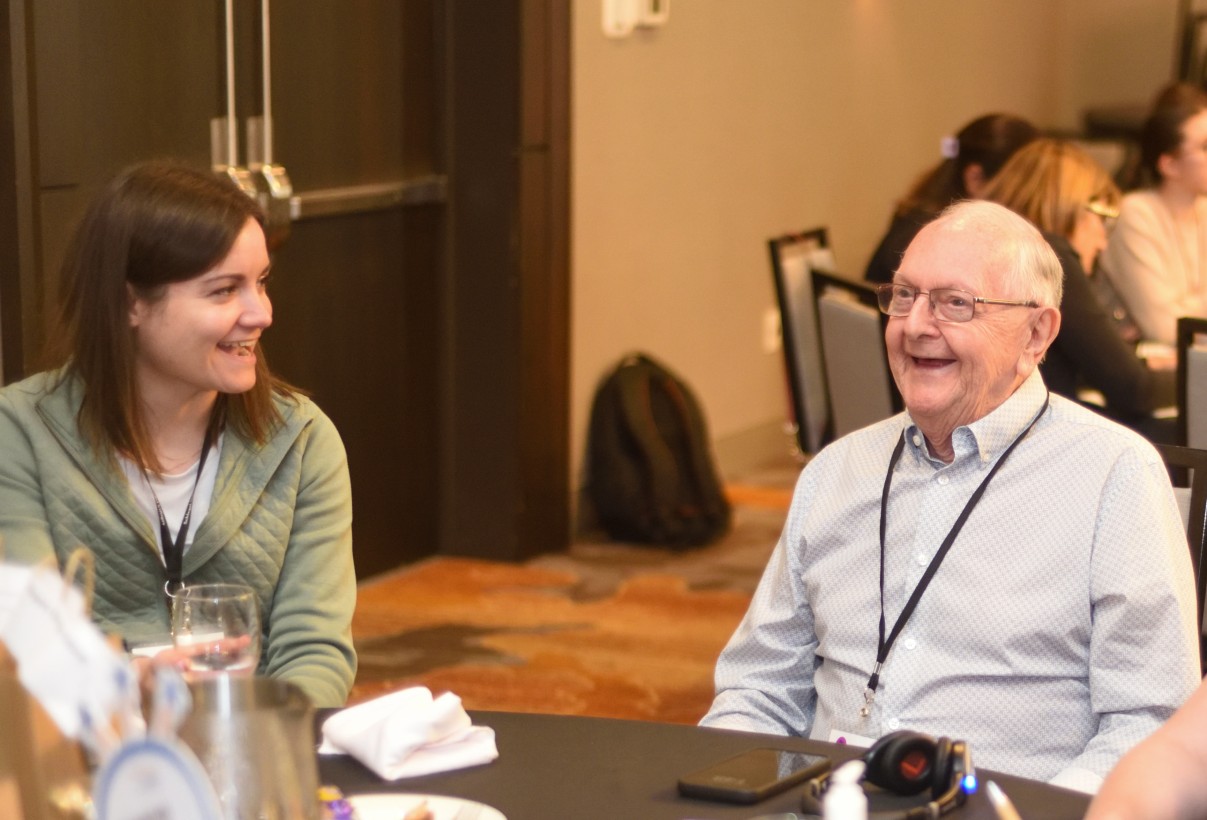2nd Annual Innovation Summit inspires Ron Smith of Humber Heights
Ron Smith has always known that the people who work at his home in The Village of Humber Heights go far beyond what many typical jobs call for in terms of personal commitment. When he joined his village representatives at the 2nd Annual Schlegel Villages/RIA Innovation Summit in June, however, he saw that commitment in a new light. This was a collection of 200 people with various connections to village life – RIA researchers, direct care partners, leadership team members and community partners – all challenging each other to think about the future of long-term care and retirement living in the light of innovation.
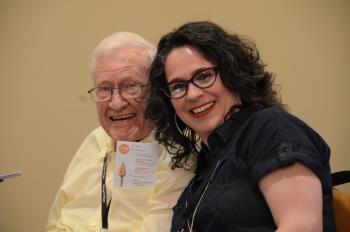
“The people here, they’re fantastic,” Ron said during a quiet break on the afternoon of the summit’s second day. “They understand it’s a way of living for us, and I never found that in my business.”
Ron was a successful publisher, responsible for some of Canada’s most recognizable magazines before he retired in the mid-1980s, and the deep sense of commitment he absorbed as part of the Innovation Summit, “well I never found that in my business,” he said. “You do the job and get the hell out of there. These people, they live it.”
Beyond sitting in on smaller summit seminars about optimizing sleep patterns, enhancing mealtime experiences or improving restorative care, for example, Ron also acted as a feature “Dragon” during the interactive Schlegel Innovator’s Den. The session, modelled after the popular CBC television series Dragon’s Den, was a fun way of sharing unique innovations from within the villages and beyond. Ron, alongside Schlegel Research Chair Dr. Heather Keller, Conestoga College’s Marlene Raasok, dean of the school of health and life sciences and community services, asked poignant questions of each presenter before the audience eventually chose the winning innovation. Ron’s keen sense of humour added much to the atmosphere.
Later, as he reflected on his time at the summit, he spoke of inspiration in the concept of mentorship. The people who make their home within the villages have much to offer the people around them, he agreed, fellow residents and team members alike. Yet for many residents, the transitions life has thrown in their path blind them to the good qualities life still has to offer.
“Some people at our place, they don’t even want to get out of their seats in the morning,” Ron says. “They sit in their dark corners . . . and just to go over to them and talk to them and see if you can lift them up, that’s something I’m going to do when I get back.”
There were many amazing innovations shared during the two-day summit – a new means of monitoring vascular health through the use of natural light, which can detect subtle changes in vital signs that could be a prelude to catastrophic events, for example, or a disinfecting product that has significantly helped defend against the spread of infection while freeing up time for team members to spend with residents.
But innovations can be much simpler, as Ron points out. It can some as easy as reimagining the way relationships are approached in village life to become more meaningful. The slightest possibility for deeper connections, it seems, can make a world of difference.
- Previous
- View All News
- Next
